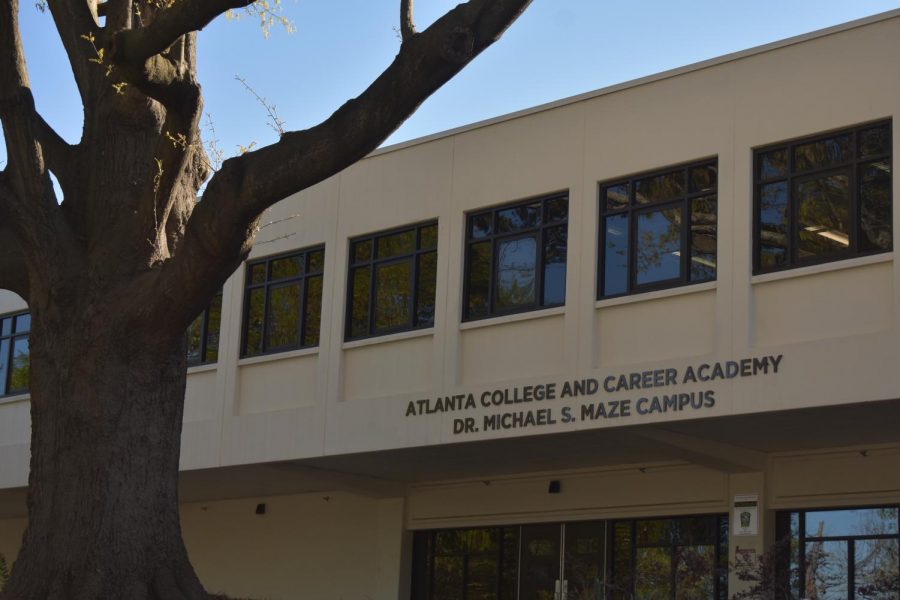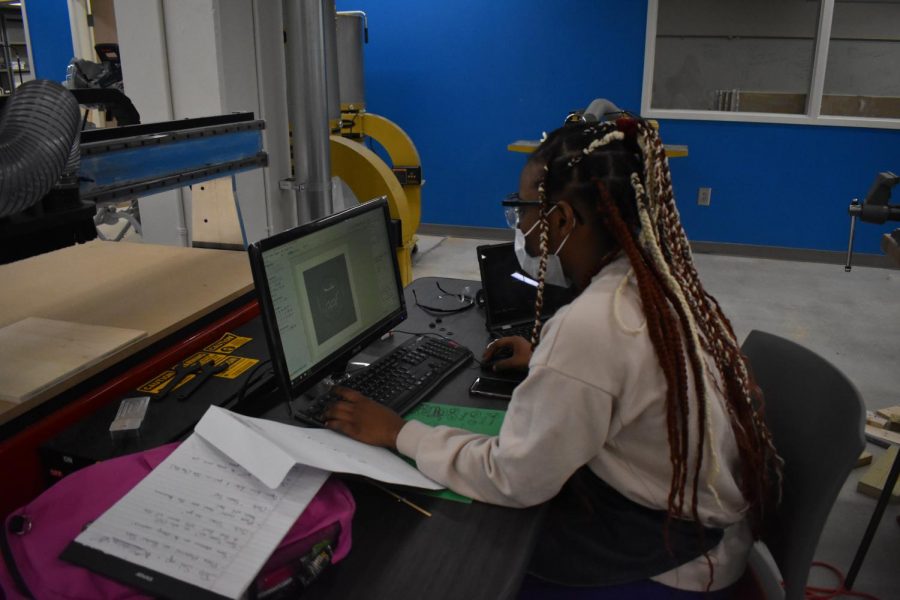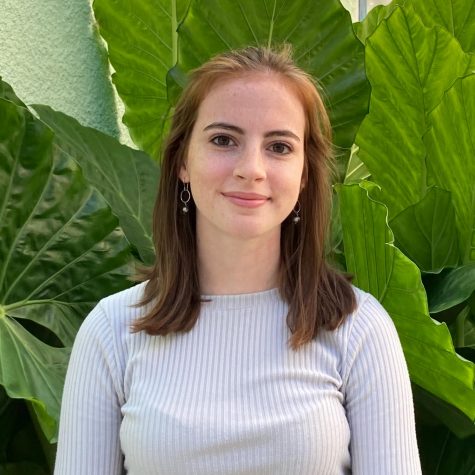Atlanta College and Career Academy opens during pandemic
The Atlanta College and Career Academy opened in fall of 2020 with the aim of preparing Atlanta Public Schools students for technical careers.
April 12, 2021
The Atlanta College and Career Academy, opened by Atlanta Public Schools in fall of 2020, focuses on preparing students for technical careers through a pathway-based education.
Despite Covid-19 induced changes, the ACCA remains committed to ensuring its students gain the skills and credentials for their post-secondary journeys.
“ACCA was created as another opportunity for APS to achieve its mission to graduate all students ready for college, career and life,” ACCA Principal Dr. Tasharah Wilson said. “Students that participate at ACCA actually have an opportunity to graduate with credentials aligned to in-demand careers here in the metro Atlanta area.”
Due to Covid-19, enrollment dropped significantly from an anticipated student body of over 500 to around 334 students. Of those 334, 91 students are participating in face-to-face learning at the academy and 243 are learning virtually.
“By the time the school year started, many had opted for virtual learning,” Dr. Wilson said. “And as a result, many of the parents and students opted to wait before participating because a lot of CTAE [Career, Technical, and Agricultural Education] is hands-on, and that was the huge sell and so we lost some students, almost half of our anticipated enrollment for this school year.”
APS students in grades 10 through 12 are eligible to apply to the academy. Prior to completing their application, students are encouraged to take the online YouScience career assessment to determine what pathway fits them best.
“It’s [the YouScience survey] is going to share careers that are aligned to your natural skills and talents,” Dr. Wilson said. “And from there, you can begin planning the training route that you want to take.”
Dr. Wilson praises the accuracy of the assessment. She once took it when she wanted to “know what it was all about.”
“When I got my results, I was shocked,” Dr. Wilson said. “Guess what my best bet career was? High school principal.”
Once students are accepted to ACCA, they choose from 13 pathways. The academy currently offers Carpentry, Criminal Investigations, Culinary Arts, Cybersecurity, Dental Science, Emergency Medical Responder, General Automotive Technology, Graphic Design, Hospitality, Recreation and Tourism, HVAC and Refrigeration, Patient Care and Programming.
Grady senior Amelia Green is in the Culinary Arts pathway and hopes to become a professional chef. Green plans to attend Cornell University’s School of Hotel Administration.
“Next year when I go to Cornell, I’ll be studying hospitality, so it [the ACCA] just felt like a natural progression,” Green said. “And it just makes sense to have another prong of my education focus on something that I’m so passionate about, with culinary arts being something that I want to do for the rest of my life.”
For the majority of ACCA students who are learning virtually, the hands-on education that trade careers require is less accessible at home. However, according to Dr. Wilson, the academy is “dedicated and committed to providing the same quality of program as if it was a regular year.”
“For those students that are remaining virtual, they’ve actually received packages of items and manipulatives,” Dr. Wilson said. “So, in culinary arts, they’re receiving the same things and activities that the students that opted for in-person learning are completing.”
Although she spent the first semester learning virtually, Green is one of two students in her Culinary Arts class who are currently in-person. Although she says that there is “definitely a big loss” in learning virtually versus in-person, Green says the academy, specifically her teacher Chef Maurietta Amos, has worked to improve the virtual experience for students.
“Chef Amos has done a really good job of trying to make it [virtual learning] traditional,” Green said. “We actually got these kits in the mail with culinary supplies with basic items, like cutting boards, measuring tools, just a basic culinary kit, which is very helpful for when we do our recipes at home. So, they’ve done a great job of trying to make it virtual but still interactive.”
Carpentry teacher Gerald Lake accommodates the two-thirds of his students who are virtual by showcasing his class’s active workspace, where students operate tools and work on construction projects, over Zoom.
“I’m able to teach the trades to the kids, all the trades: plumbing, electric, carpentry, gas, masonry,” Lake said. “So, they don’t just learn one component of the trades, they learn it all. It’s a wonderful experience for me as well as the kids.”
The overall aim of the ACCA is to emphasize the abundance of opportunities for students in their postsecondary journey, specifically in technical careers.
“I think what we’re trying to do is pull the curtains back, and make sure that students and parents alike understand the opportunities that are available if college is not the path for you,” Dr. Wilson said. “Everyone’s journey will be different.”








